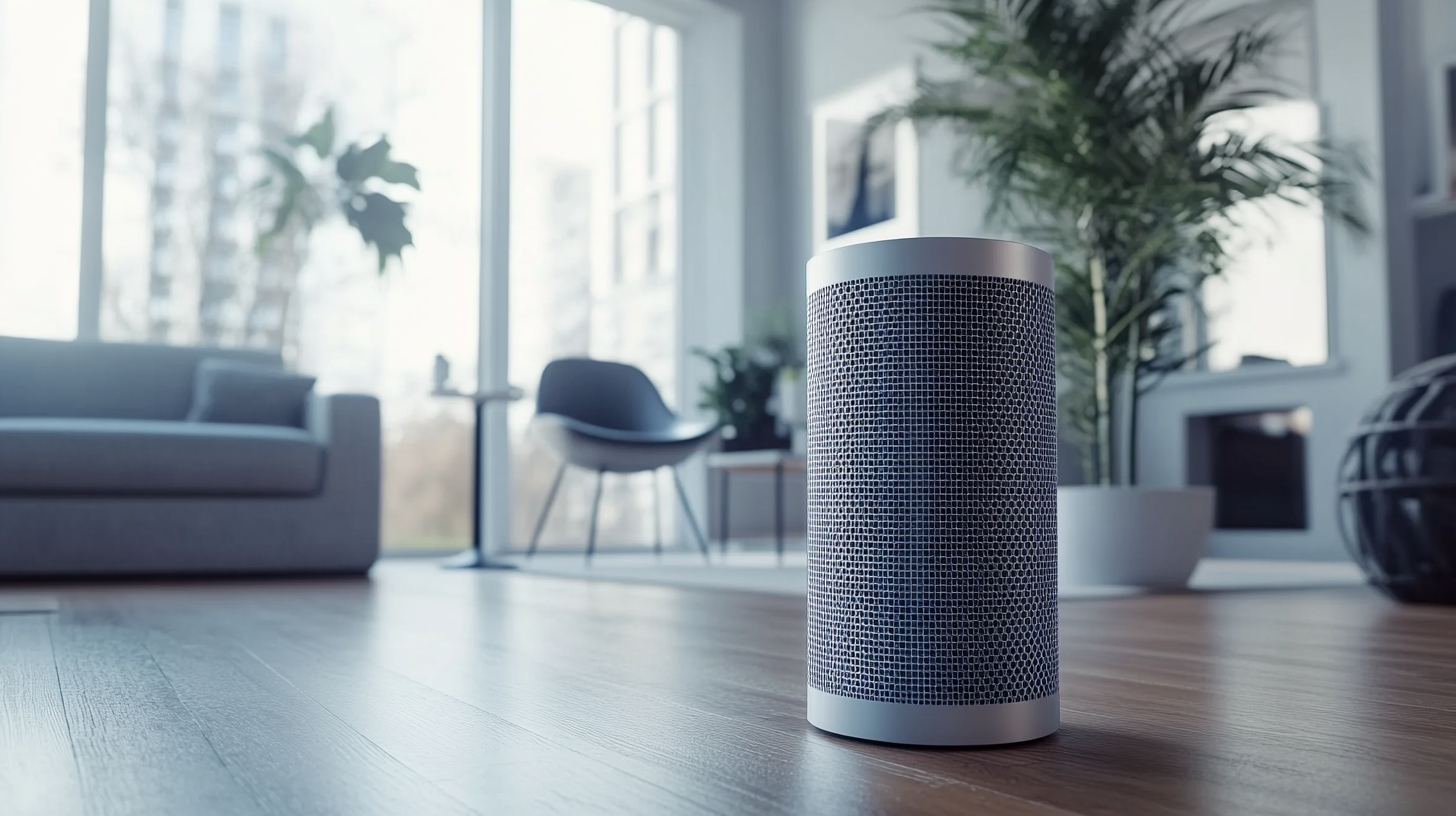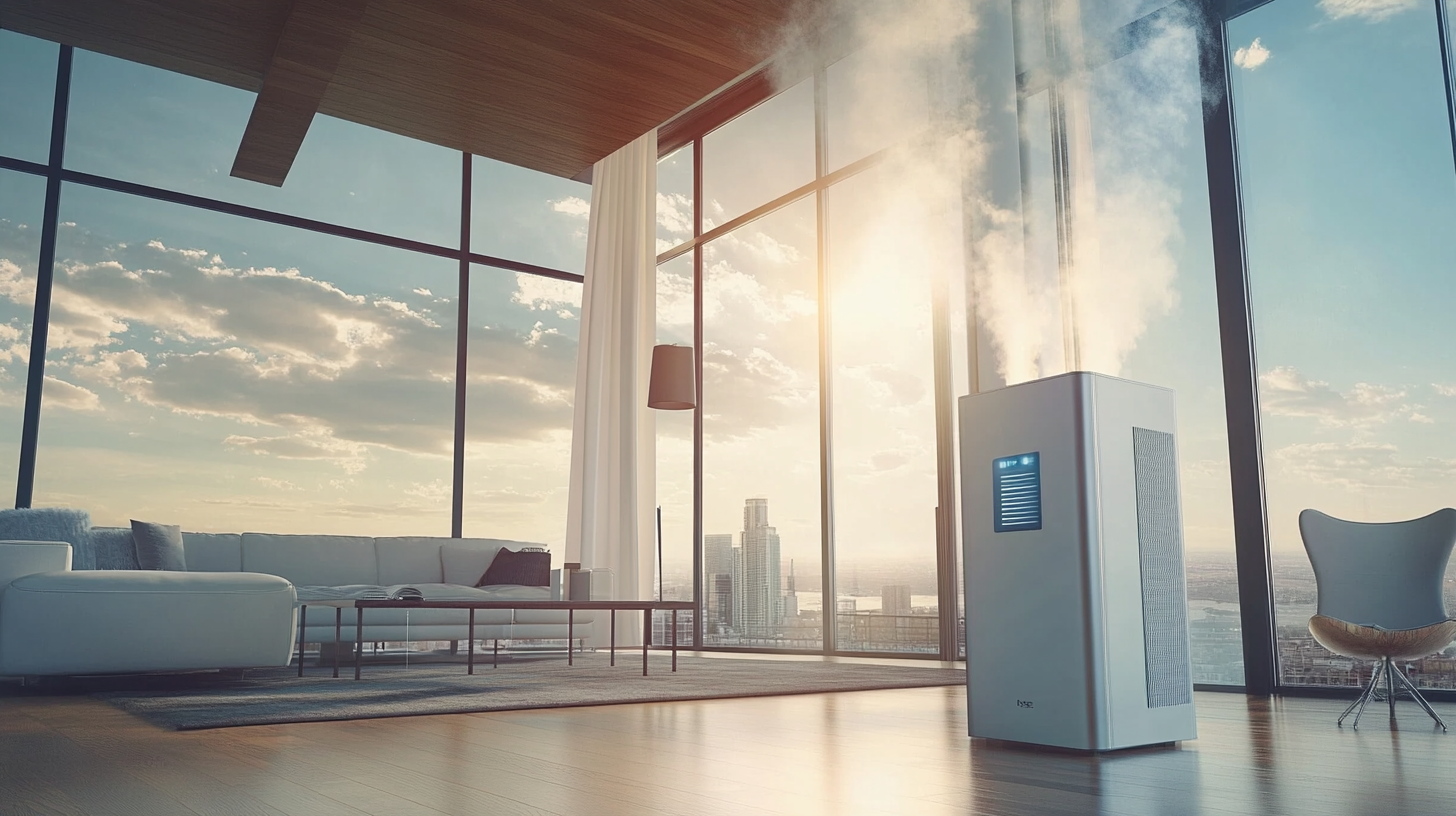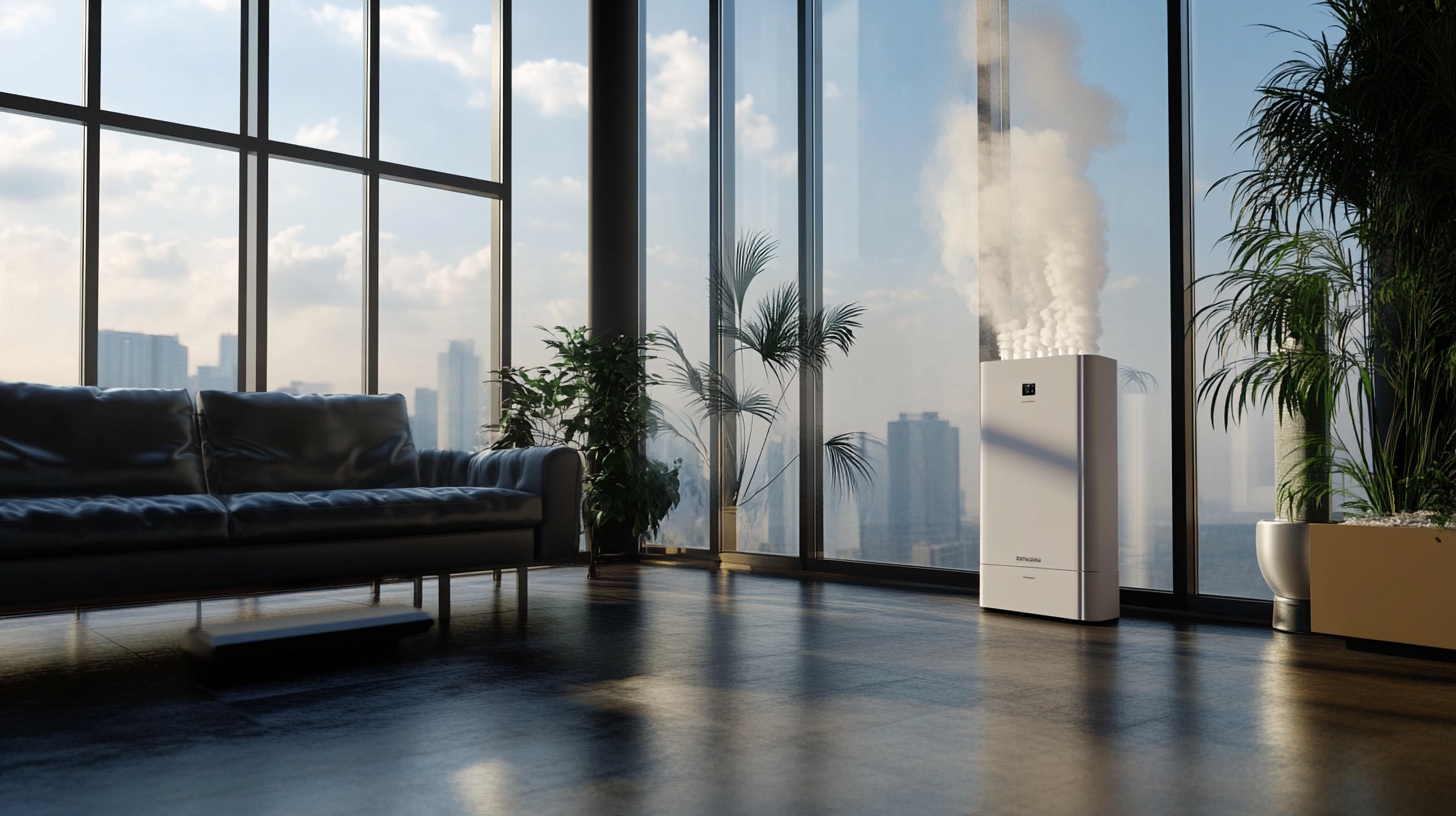
Discover the Benefits of Best Air Filtration Solutions for Optimal Indoor Air Quality
In today's world, the importance of maintaining optimal indoor air quality cannot be overstated. With increasing pollution levels and the rise of allergens, ensuring a clean and healthy living environment is essential for overall well-being. This blog will explore the benefits of the best air filtration solutions available in the market, providing you with essential insights and tips to enhance your home's air quality. From understanding the technology behind various air filtration systems to discovering how they can effectively remove pollutants, allergens, and other harmful particles, we aim to empower you with the knowledge needed to make informed decisions. Join us as we delve into the world of air filtration and uncover practical strategies for creating a healthier indoor atmosphere for you and your loved ones.

Understanding Indoor Air Quality and Its Importance
Indoor air quality (IAQ) is a crucial component of our overall health and well-being. According to the U.S. Environmental Protection Agency (EPA), indoor air can be two to five times more polluted than outdoor air, highlighting the urgent need for effective air filtration solutions. The presence of pollutants, such as volatile organic compounds (VOCs), particulate matter, and mold, can lead to a range of health issues, including respiratory problems, allergies, and even chronic diseases. With people spending up to 90% of their time indoors, the importance of maintaining high indoor air quality cannot be overstated.
Recent studies indicate that improving IAQ can lead to significant health benefits and productivity gains. For instance, a report by the World Health Organization (WHO) suggests that enhancing indoor air quality can result in a 20% reduction in sick days taken by employees. Furthermore, a study published in the Journal of Indoor Air noted that optimizing air filtration systems not only reduces allergens and pollutants but also improves cognitive function, with participants showing enhanced performance in tasks requiring focus and decision-making. Investing in the best air filtration solutions is not just about cleaner air; it's about fostering a healthier and more productive living and working environment.

Key Features to Look for in Air Filtration Systems
When choosing an air filtration system, several key features can significantly enhance indoor air quality. Firstly, look for systems equipped with HEPA filters. According to the Environmental Protection Agency (EPA), HEPA filters can remove at least 99.97% of airborne particles that are 0.3 microns in size, including dust, pollen, and pet dander. This is crucial for individuals suffering from allergies or asthma, as improved air quality can lead to a noticeable reduction in symptoms.
Another important feature to consider is the system's CADR (Clean Air Delivery Rate). A higher CADR rating indicates a more efficient filtration system. The Association of Home Appliance Manufacturers (AHAM) recommends selecting a unit with a CADR that matches the size of your room for optimal performance. Additionally, a multi-stage filtration process can provide extra protection by combining different types of filters, such as activated carbon for odors and VOCs, with HEPA technology. This holistic approach ensures a cleaner and healthier indoor environment, addressing a variety of pollutants that can adversely affect well-being.
Evaluating Potential Suppliers: What You Need to Know
When evaluating potential suppliers for air filtration solutions, it’s essential to consider several key factors that can impact both the effectiveness of the products and your overall indoor air quality. First, assess the supplier’s reputation and experience in the industry. Look for companies that have been in the market for several years and have a track record of providing reliable filtration systems. Customer reviews and case studies can offer valuable insights into their performance and service quality.
Another critical aspect is the range of products offered. A good supplier should provide various air filtration solutions tailored to different environments, whether for residential, commercial, or industrial use. This variety ensures that you can find a system that suits your specific needs, whether you require HEPA filters for allergy management or activated carbon filters for odor removal. Additionally, inquire about the technology behind their products. Advanced features like smart sensors, energy efficiency, and low maintenance requirements can significantly enhance the benefits of air filtration solutions, improving your indoor air quality while also being mindful of energy consumption.

Top Strategies for Choosing the Right Air Filtration Solution
When choosing the right air filtration solution, it's essential to consider various factors that influence indoor air quality. According to the U.S. Environmental Protection Agency (EPA), indoor air can be up to five times more polluted than outside air. This highlights the need for effective air filtration systems to mitigate pollutants such as dust, allergens, and volatile organic compounds (VOCs).
Tip: Look for filters with a Minimum Efficiency Reporting Value (MERV) rating of at least 8 to ensure they capture a significant range of airborne particles. Higher MERV ratings can catch smaller particles, but make sure your HVAC system can handle the filtration efficiency you choose.
Additionally, understand the specific needs of your environment. For instance, households with pets may require HEPA filters that trap pet dander effectively. Data from the American Lung Association indicates that HEPA filters can remove 99.97% of particles as small as 0.3 microns, making them ideal for sensitive populations, such as those with asthma or allergies.
Tip: Consider a multi-stage filtration system that includes pre-filters, activated carbon filters, and HEPA filters for comprehensive air purification. This strategy not only targets different types of pollutants but also enhances the overall efficiency and lifespan of the filters.
Discover the Benefits of Best Air Filtration Solutions for Optimal Indoor Air Quality
| Air Filtration Type | Efficiency Rating | Particle Size Removal (µm) | Lifespan (Months) | Cost ($) |
|---|---|---|---|---|
| HEPA Filter | 99.97% | 0.3 | 12 | 30 |
| Activated Carbon Filter | 80% | 1.0 | 6 | 25 |
| UV Light Filter | 95% | 0.1 | 24 | 70 |
| Electrostatic Filter | 90% | 0.5 | 12 | 40 |
Maximizing the Benefits of Your Air Filtration System
Maximizing the Benefits of Your Air Filtration System
Indoor air quality significantly impacts overall health, making it essential to optimize your air filtration system for the best results. According to the Environmental Protection Agency (EPA), indoor air can be 2 to 5 times more polluted than outdoor air, which highlights the necessity of effective filtration. Utilizing high-efficiency particulate air (HEPA) filters can remove up to 99.97% of particles, including dust, pollen, and smoke, ensuring that the air you breathe is clean and safe.
Regular maintenance and replacement of filters are crucial for maximizing the performance of your air filtration system. Research by the American Society of Heating, Refrigerating and Air-Conditioning Engineers (ASHRAE) indicates that neglecting to change filters can reduce airflow efficiency by up to 50%, leading to diminished air quality and increased energy consumption. By adhering to a replacement schedule and selecting the appropriate filter size and type for your environment, you can enhance air circulation and maintain optimal filtration, ultimately creating a healthier indoor atmosphere for you and your family.
